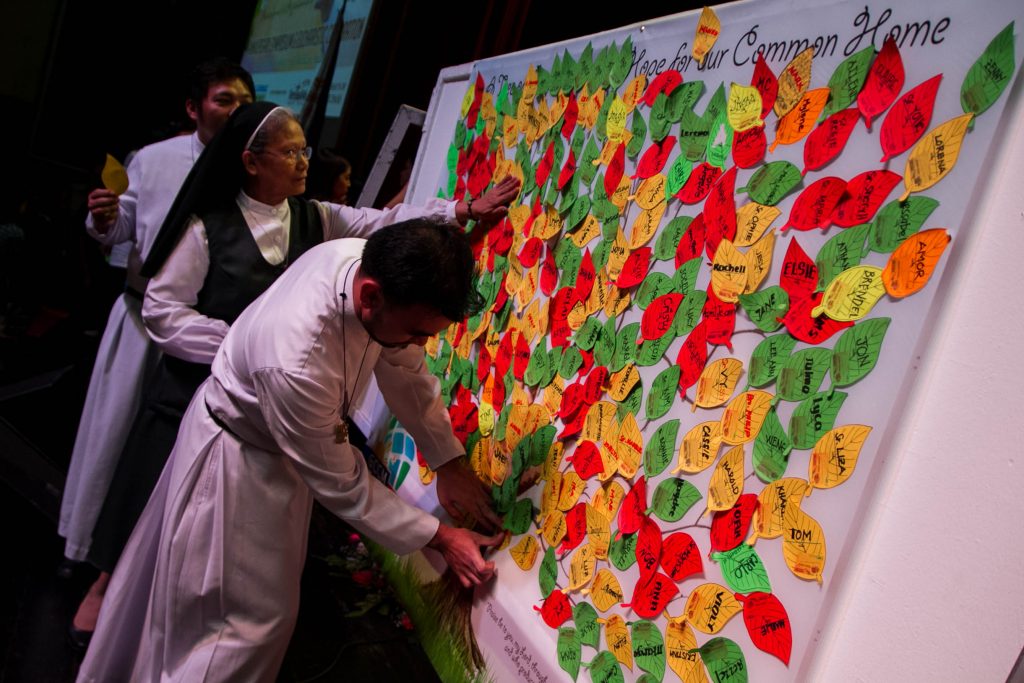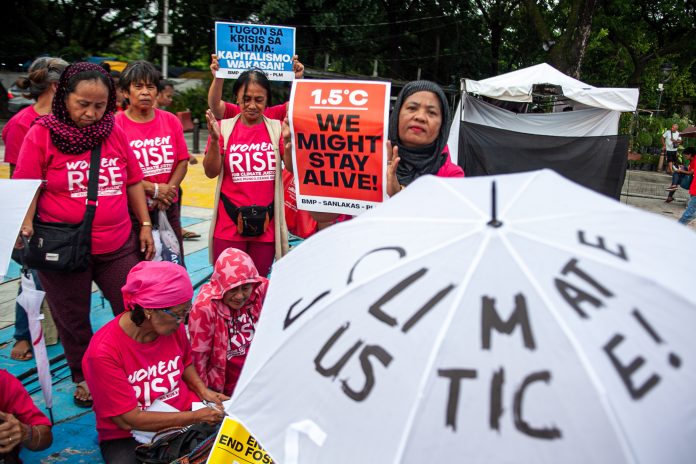Pro-environment activists urged the Philippine government and various other sectors to “translate the climate crisis” into the language of the masses.
The activists said poor communities that are most vulnerable to the impacts of climate change “must fully understand what are the threats, who are accountable, and how to act on them.”
They made the call during an online discussion on Wednesday about the UN climate panel report that says the world is unlikely to prevent global warming of 1.5 degrees Celsius by 2040.
John Leo Algo of the group Aksyon Klima said communicating the climate crisis to communities “is more than just making it more relatable in terms of language.”
“We need to make it relatable for the public, especially the poor and vulnerable communities, in terms of content,” he said.
Algo admitted that the challenge is translating technical terms into the language that the masses would appreciate.
The Intergovernmental Panel on Climate Change’s full report, which was released on August 9, has nearly 4,000 pages with highly technical and specialized terminologies.
The new report, considered the most comprehensive summary of the physical science of climate change, was approved by 195 governments.
Lawyer Angela Ibay of the World Wild Fund for Nature-Philippines said pro-environment organizations have to find a way to communicate the climate crisis to the public.
“Whoever we interact with, we use the language that speaks to them, and be able to ensure that they understand that every action that they do actually makes a difference,” she said.
Marinel Ubaldo, Philippine Country Coordinator to the 2021 UN Conference of Youth, said the government must institutionalize the integration of climate change in schools.
“We must also contextualize the climate crisis so people in the community would relate to it. Discuss it using the very experience of the people in the poor communities,” she said.
Rodne Galicha of Living Laudato Si Philippines said it is important to make the public understand that they are suffering because of “decades of environmental plunder.”
“We need to have a drastic, more progressive, radical action to face this big challenge, but on top of that … we need to make it known who is accountable for this looming catastrophe,” he said.

China, the European Union, and the United States – the world’s top three greenhouse gas emitters – contribute at least 41.5 percent of the total global carbon emissions while the bottom 100 countries only account for 3.6 percent.
The energy sector remains the biggest carbon emitter because of the use of dirty energy sources such as coal and other fossil fuels.
The UN report notes that “it is unequivocal” that human influence has warmed the climate “at a rate that is unprecedented.”
Lawyer Alaya de Leon of Parabukas said the Philippine government must exercise inclusivity in terms of how it governs the country’s disaster planning, prevention, and recovery.
“[It must] include vulnerable sectors, indigenous peoples, and women in the decision-making and planning,” she said.
“We can address pandemic recovery and also our climate responses and green recovery together,” said De Leon.
Albert Magalang, head of the Climate Change Division of the Environment department, stressed the “immediate necessity of rethinking and re-engineering” current policies.
“We call for coherent and integrative climate and environmental action,” he said, noting that compliance to current business-as-usual policies alone will not solve climate change and environmental problems.”









